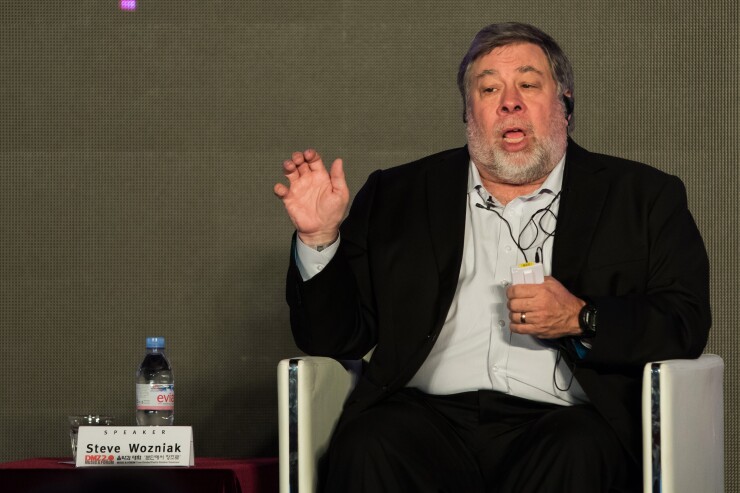When I was informed that Steve Wozniak, the legendary “Woz” and co-founder of Apple Computer, was
My parents were early technology adopters. In fact, I didn’t realize that not every kid grew up with a computer in their home until I was much older. I was fortunate to be able to get comfortable using a computer as a pretty young child. My favorite game was “Where in the World is Carmen Sandiego?”, but my favorite program overall was one that allowed me to homebrew Garfield comics.
In fact, I originally thought about writing this piece about how Woz’s commitment to user experience in the early days of Apple were instrumental in making it easy for me to boot up those programs and have fun without worrying about command lines or anything like that. I was ready to compare it to today’s push for user experience in insurance, and how making it easy to use your product is part of the battle.

But Woz hasn’t been frozen in time since the late 1970s and early 1980s, when he was a major figure at what is today one of the biggest companies on Earth in terms of revenue, name recognition, cultural importance, and whatever other measure you want to use. He’s spent a lot of the past 40 years focusing on advancing education, ideation and positivity in the technology industry. And that provides just as interesting a lesson for insurers.
Interviews with Woz reveal a man whose tinkering nature continues to shine through. In a
In an industry like insurance, where inertia is strong and there’s a tension between the way things have “always been done” and new ideas, many stakeholders could benefit from reinforcement of this idea. There are more ideas and theories on the future of insurance now than there has been in my decade covering the space. But ultimately, all innovations must serve the core product of risk management. I’m really interested in hearing what Woz thinks about the direction insurance is going. Are ideas being leveraged to their fullest potential? What issues are still endemic? I hope you’ll join me in finding out





